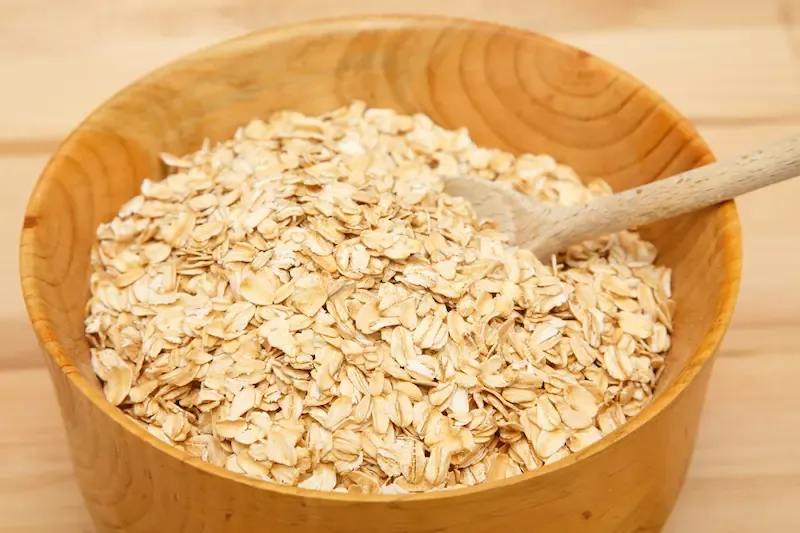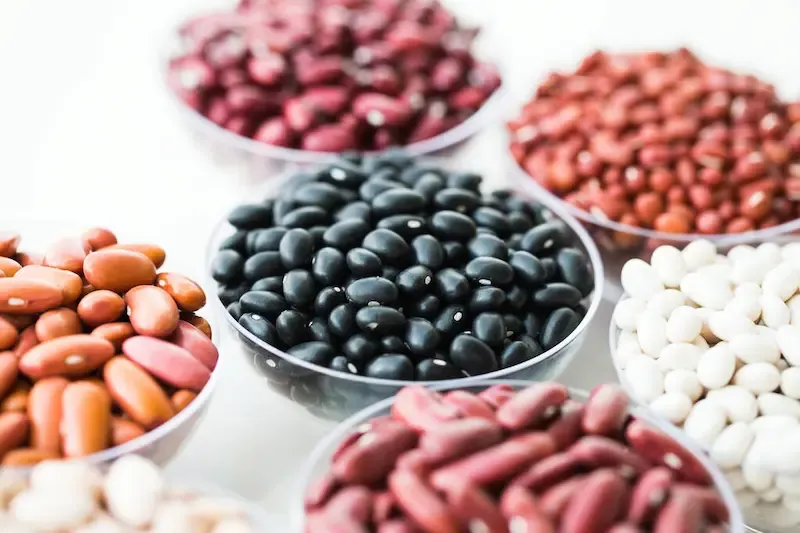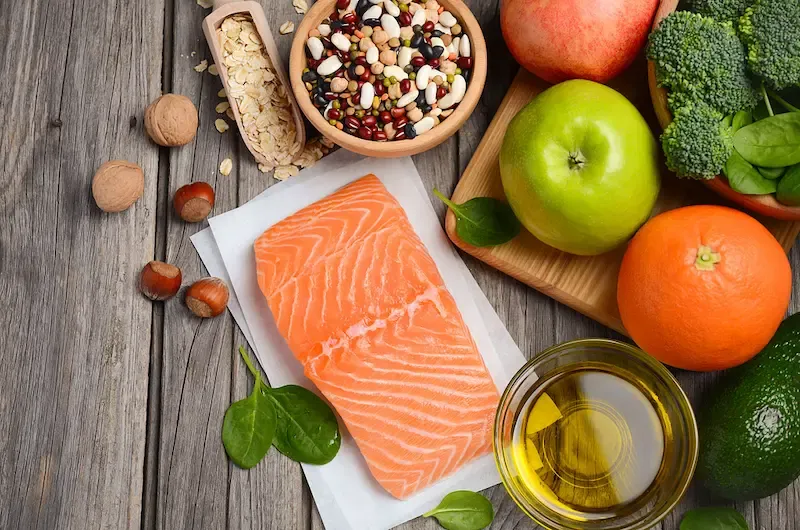High cholesterol is a silent but significant health risk affecting millions globally. According to the Centers for Disease Control and Prevention, high cholesterol heightens the danger of heart disease and stroke, two of the leading causes of death. Managing cholesterol levels is crucial for anyone aiming to maintain optimal health and longevity. Fortunately, nature offers an array of foods that can aid in lowering these levels effectively without medication.
The journey toward healthier cholesterol begins with understanding what we eat. “Dietary choices play a substantial role in managing cholesterol,” notes Dr. Ann Brown, a nutrition expert at the National Institutes of Health. Foods laden with fiber, omega-3 fatty acids, and healthy fats have been proven to cut LDL (low-density lipoprotein) levels — often termed ‘bad’ cholesterol — and raise HDL (high-density lipoprotein) or ‘good’ cholesterol. This article explores these vital foods and provides practical guidelines on incorporating them into daily meals, offering a simple yet powerful path to better health through diet. Read on to discover how everyday ingredients can transform your approach to wellness while keeping your heart healthy.
Oats: A Heart-Healthy Breakfast Staple
Oats are lauded for their cholesterol-lowering properties, largely due to a type of soluble fiber known as beta-glucans. These fibers form a gel-like substance in the digestive tract that binds cholesterol, preventing its absorption into the bloodstream. Numerous studies support this heart-friendly benefit, with findings indicating that consuming just 3 grams of beta-glucans daily can reduce LDL (bad) cholesterol by up to 7%. This makes oats an invaluable ally in the fight against high cholesterol levels.

Incorporating oats into your diet is simple and versatile. For breakfast, oatmeal cooked with water or milk is a classic go-to. To add variety and flavor without compromising health benefits, consider topping your bowl with berries and a sprinkle of nuts. Overnight oats present another convenient option. Mixing rolled oats with yogurt or milk alongside fruits creates a ready-to-eat meal by morning. For those who prefer savory options, oat risotto or adding oats to meatloaf or burgers as a binder are creative alternatives.
To reap maximum benefits from this superfood, serving size matters. Health experts recommend at least one-and-a-half cups of cooked oats per day to achieve meaningful reductions in LDL cholesterol levels. It’s crucial to pair your portion with overall dietary balance to avoid calorie overload from added sugars or fats often found in flavored oatmeal packets. By embracing natural toppings and portion control, you can enjoy the heart-protective powers of oats while managing weight effectively.
Fatty Fish
Omega-3 fatty acids, found in abundance in fatty fish, are renowned for their heart-protective properties. These essential fats play a critical role in reducing inflammation, lowering blood pressure, and decreasing levels of triglycerides in the bloodstream, all of which contribute to improved cardiovascular health. The American Heart Association recommends consuming at least two servings of fatty fish per week to harness these benefits.
Salmon and mackerel are standout choices due to their high omega-3 content. In particular, wild-caught salmon is rich not only in omega-3s but also in vitamin D and selenium — nutrients that further support overall health. Mackerel offers similar advantages and is often praised for its affordability and availability. Other worthy mentions include sardines and herring, known for being both nutrient-dense and budget-friendly.
To maximize the nutritional benefits of these fish, it’s important to choose appropriate cooking methods. Grilling or baking fattier cuts like salmon helps preserve its natural oils and flavor without adding extra fat. For a swift preparation method that locks in nutrients, consider poaching or steaming your fish with herbs or sliced lemon to enhance taste without overshadowing its natural qualities. Utilizing such techniques ensures you reap the full spectrum of health benefits offered by these powerhouse foods.
Avocados
Avocados are a powerhouse of healthy fats, particularly monounsaturated fats, which have been shown to improve cholesterol levels by reducing LDL, or “bad” cholesterol. A study published in the Journal of the American Heart Association found that consuming one avocado a day was linked to improvements in blood cholesterol and heart health. Beyond their beneficial fat content, avocados also provide fiber and antioxidants, further supporting cardiovascular well-being.

Incorporating avocados into your meals need not be daunting. They add a creamy texture and rich flavor to various dishes. Spread mashed avocado on whole-grain toast for breakfast or mix it with diced tomatoes and onions for a refreshing guacamole side dish. Avocado slices can enhance your salads or sandwiches while chopped avocados make excellent additions to soups and smoothies, providing depth without overpowering other ingredients.
Though nutritious, avocados are calorie-dense, making portion control important. A single avocado contains about 240 calories; hence moderation is key for those managing their caloric intake alongside cholesterol concerns. Aim for half an avocado at a time if you’re mindful of calories but want to maintain nutritional benefits. Balancing intake with physical activity can optimize the heart-healthy advantages that come with this versatile fruit.
Nuts and Seeds
Nuts and seeds are nutritional powerhouses that support heart health through their unique content of healthy fats, fiber, and plant sterols. Almonds stand out with high levels of monounsaturated fats which can improve cholesterol levels. Walnuts are another excellent choice due to their richness in omega-3 fatty acids, known to reduce inflammation and lower the risk of heart disease. Chia seeds and flaxseeds contribute soluble fiber and lignans, compounds that help lower LDL cholesterol and enhance overall cardiovascular function.
Consuming nuts and seeds regularly is associated with a range of health benefits, including lowered cholesterol levels. For optimal effects, experts recommend a daily intake ranging from 1 ounce (about a small handful) to 1.5 ounces for adults. This modest amount provides ample nutrients without excessive calorie intake. A study published in the *American Journal of Clinical Nutrition* found that individuals who incorporated these servings experienced significant improvements in lipid profiles.
To easily incorporate these foods into your diet, consider creative snacking options or meal enhancements. Sprinkle chia seeds on yogurt or blend them into smoothies for an antioxidant boost. Nuts like almonds can be added to salads for a satisfying crunch, while ground flaxseeds can be mixed into oatmeal or whole-grain pancakes as part of a heart-conscious breakfast routine. Remember to choose unsalted varieties to keep sodium intake in check while enjoying the full spectrum of nutritional benefits they offer.
*Want to know more about a Breakthrough Discovery Revealing How Cutting Out ONE Hidden Ingredient Lowers Cholesterol Level Below 100 And Clears Out 93% Clogged Arteries? Click the link below to find out more:
https://5b825gldkak3zho-qjz1qxzqkg.hop.clickbank.net
As a ClickBank Affiliate, I receive a small commission at no cost to you, if you proceed to make a purchase.
Beans and Legumes
Beans and legumes stand out as nutritional powerhouses in the fight against high cholesterol, specifically aiming to lower LDL cholesterol. One of their chief benefits comes from their rich fiber content — specifically soluble fiber, which is known for its ability to reduce LDL levels by binding with cholesterol molecules in the digestive system and helping to eliminate them from the body. Studies have shown that consuming as little as half a cup of beans or legumes daily can effectively bring down cholesterol numbers, making them an essential component of any heart-healthy diet.

Among the vast array of varieties available, lentils, chickpeas, and black beans are not only popular choices but are also exceptionally versatile. Lentils cook rapidly without presoaking, making them a quick addition to soups or salads for added texture and nutrition. Chickpeas shine both in hummus form or when roasted for a crunchy snack alternative that’s perfect on-the-go. Meanwhile, black beans serve as a hearty base for dishes ranging from classic chili to delightful burritos. Each variety uniquely contributes to lowering cholesterol while providing ample protein and other nutrients necessary for maintaining overall health.
For those seeking practical ways to incorporate these legumes into everyday meals, simple recipes abound that cater to various palates and dietary needs. For example, a warm lentil stew seasoned with herbs offers comfort during cooler months yet requires minimal preparation time. Alternatively, a refreshing summer salad could feature chickpeas tossed with cucumbers, tomatoes, and lemon dressing— a dish boasting both flavor and heart benefits. Cooked black beans can bolster taco nights by substituting meat options with this plant-based protein source that remains budget-friendly yet effective at improving cardiovascular well-being through consistent consumption.
Fruits & Vegetables
The vibrant spectrum of fruits and vegetables offers more than just a feast for the eyes; it’s a powerhouse of antioxidants essential for combating cholesterol buildup. Antioxidants prevent oxidative stress that contributes to plaque formation in arteries, making them vital for cardiovascular health. Berries like blueberries and strawberries are rich in polyphenols, which help lower blood pressure and improve heart health. Similarly, apples contain pectin — a type of soluble fiber that can lower LDL cholesterol.
Including a variety of produce in your diet can be achieved with some best choices known for their cholesterol-lowering properties. Citrus fruits such as oranges and grapefruits are high in vitamin C and flavonoids, both recognized for reducing inflammation and improving heart function. Cruciferous vegetables — think broccoli, Brussels sprouts, and kale — are laden with sulfur compounds that detoxify the bloodstream and reduce cholesterol levels effectively. These foods stand out not just for their antioxidant content but also for their ability to fit into diverse culinary contexts seamlessly.
To integrate more fruits and vegetables into meals without much hassle, meal prep strategies could be streamlined according to personal preferences. Consider preparing smoothie packs with portions of berries or citrus fruits for quick morning blends. Adding apple slices to salads or using mashed avocado as a dressing alternative also enriches dishes with necessary nutrients while maintaining taste appeal. As part of traditional meals, prepare an oven-baked medley of cruciferous vegetables seasoned simply with olive oil and herbs for an easy side dish packed with health benefits. With thoughtful preparation techniques, anyone can boost their daily intake of these potent produce varieties effortlessly.
Olive Oil
Olive oil is a staple in many kitchens, prized not just for its flavor but also for its health benefits. Unlike saturated fats that can raise LDL cholesterol levels, olive oil contains monounsaturated fats known to lower LDL without affecting the beneficial HDL cholesterol significantly. These fats are linked to several heart health benefits and have been shown in studies to improve markers of inflammation and decrease the risk of chronic diseases. By replacing butter or other saturated fat sources with olive oil, individuals can make a simple yet impactful change toward better cardiovascular health.
Incorporating olive oil into daily cooking routines is both easy and versatile. It can be used as a salad dressing base or drizzled over roasted vegetables to enhance flavor while providing health benefits. Olive oil works well in low-heat sautéing or as a key ingredient in marinades for fish and lean meats. For maximum nutritional retention, it’s best to avoid exposing olive oil to high temperatures; instead, try using it as a finishing touch on dishes such as pasta or soups.

When selecting olive oil for these healthy swaps, opt for high-quality extra virgin olive oil (EVOO). This choice promises both superior taste and nutritional profile due to minimal processing methods. Look for options that are labeled “cold-pressed,” which retain more antioxidants and nutrients during production. Additionally, consider checking the harvest date on the bottle since fresher oils tend to offer more potent flavors and health benefits. Ensure that any significant dietary adjustments align with medical advice by consulting healthcare professionals.
Embrace Heart-Healthy Choices
Incorporating cholesterol-caring foods like oats, fatty fish, avocados, and nuts into your diet can significantly impact heart health. These nutrient-dense options, combined with beans, vibrant fruits and vegetables, and high-quality olive oil, work to naturally reduce cholesterol levels. As part of a balanced diet, these foods not only promote cardiovascular well-being but also enhance overall nutrition.
Lifestyle changes extend beyond dietary adjustments. Regular physical activity complements the benefits of a healthy diet in managing cholesterol levels effectively. Individuals are encouraged to engage in consistent exercise and to seek guidance from healthcare professionals before making significant changes to their eating habits or lifestyle routines. By doing so, they ensure that their efforts align with personal health needs and goals.





